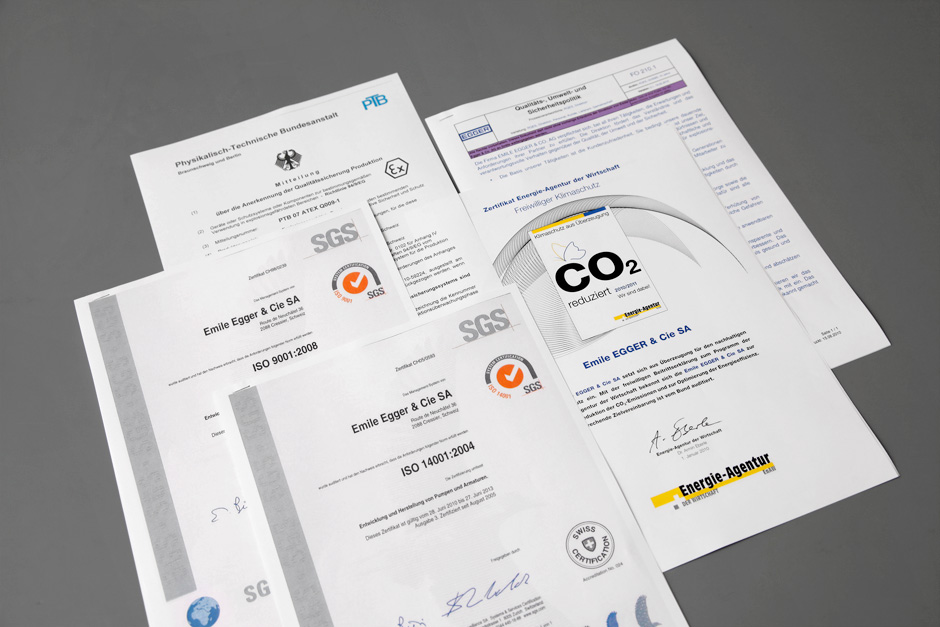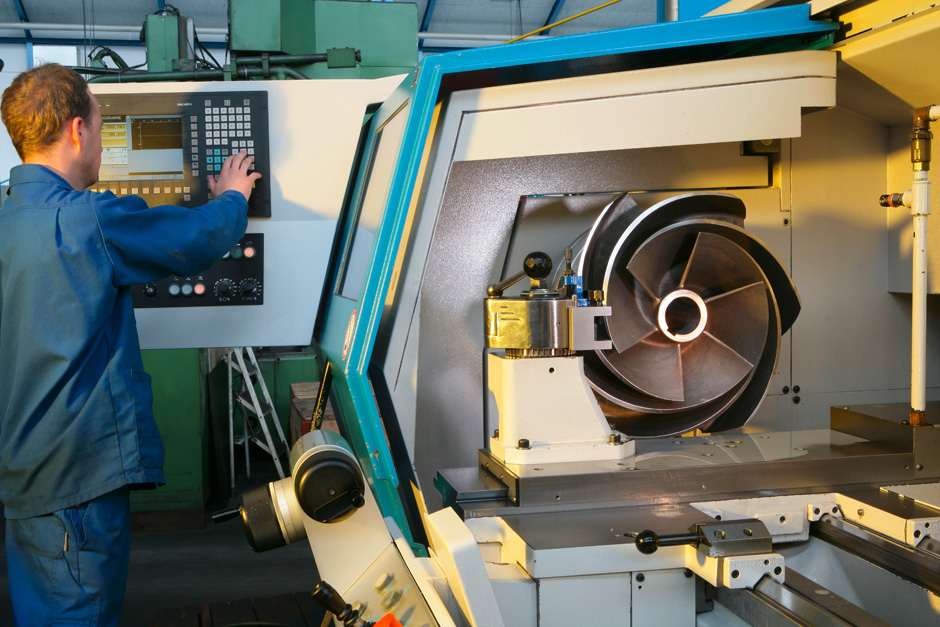Egger's Integrated Management System groups different requirements of a variety of standards and guidelines; these include, for example, ISO 9001 for quality, ISO 80079-34 for quality in areas threatened by explosions, ISO 14001 for the environment, ISO 45001 for health and occupational safety, ISPM 15 for wood packaging and participation as «known consignor» for air freight safety.
Quality assurance and customer satisfaction
By maintaining its standards and norms, Egger guarantees continued improvement of its service and general performance. In this way, Egger provides a continuous amelioration of its processes and assures a professional development and the high quality of the delivered product.
In the course of manufacturing, individual parts and components are subject to tight controls. The finally assembled and operation-ready pump will then be exposed to real-world operating conditions in the Testing Department. On the test stand, the performance of the pump will be checked with water as the test fluid. This reality-simulated test produces especially meaningful measured values, in contrast to purely mathematical checks. Egger tests its pumps against tolerances and procedures meeting internationally recognized standards and in accordance with petrochemical standards as well.

Health and occupational safety
We set specific goals for our employees with regard to worker safety and preservation of health. The necessary measures are always taken whenever hazards are identified as well as after accidents or near-accidents. Some of these measures affect such areas as the wearing of protective clothing (safety shoes, eye protection, etc.), the elimination of dangerous substances, the restriction of flammable substances, the training and licensing of forklift truck operators, the acquisition of modern production machinery, noise isolation, and the maintenance and care of lifting devices.
Regulations related to First Aid are complied with and communicated within the firm. The efficiency of First Aid is assured through First Aid training of employees, quick response, and the necessary equipment. The legal requirements for working hours and the protection of apprentices and pregnant workers are respected.
 Egger polymechanics working on a CNC machining centre.
Egger polymechanics working on a CNC machining centre.